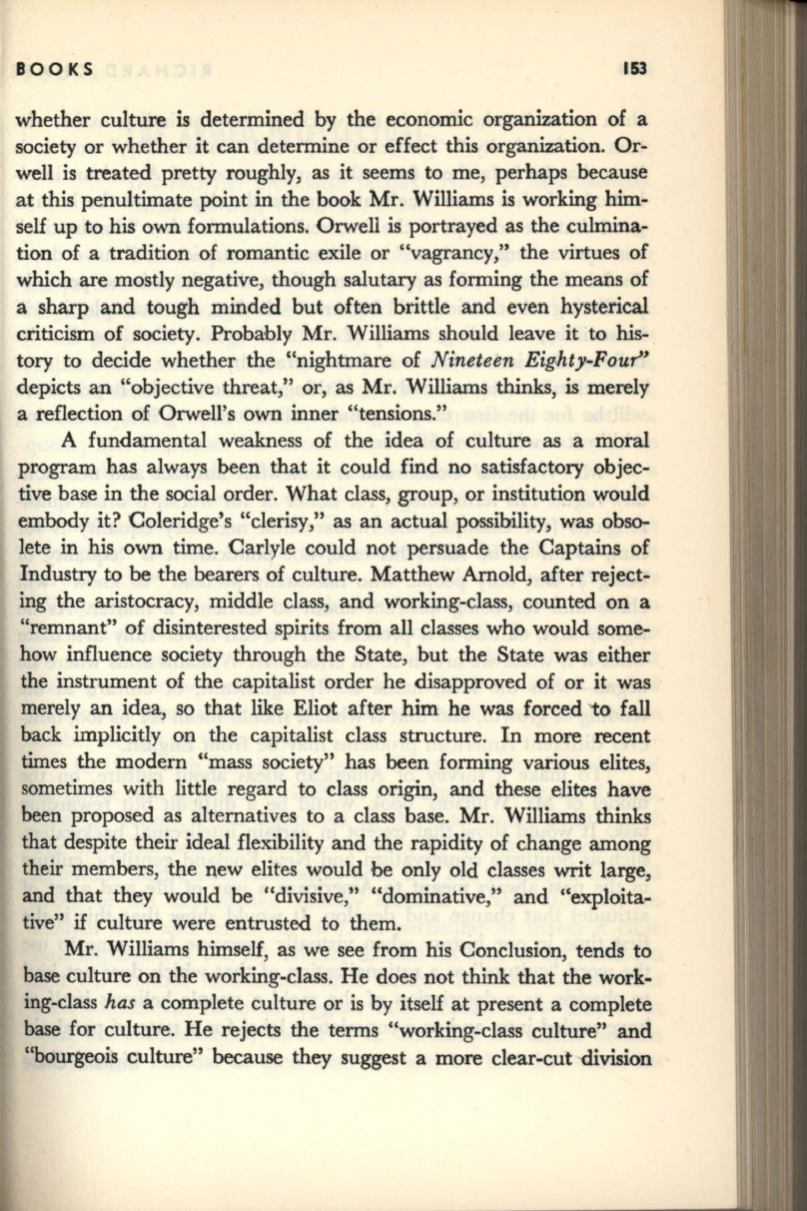
BOOKS
153
whether culture is determined by the economic organization of a
society or whether it can determine or effect this organization. Or–
well is treated pretty roughly, as
it
seems to me, perhaps because
at this penultimate point in the book Mr. Williams is working
him–
self up to his own formulations. Orwell is portrayed as the culmina–
tion of a tradition of romantic exile or "vagrancy," the virtues of
which are mostly negative, though salutary as forming the means of
a sharp and tough minded but often brittle and even hysterical
criticism of society. Probably Mr. Williams should leave it to his–
tory to decide whether the "nightmare of
Nineteen Eighty-Four"
depicts an "objective threat," or, as Mr. Williams thinks, is merely
a reflection of Orwell's own inner "tensions."
A fundamental weakness of the idea of culture as a moral
program has always been that it could find no satisfactory objec–
tive base in the social order. What class, group, or institution would
embody it? Coleridge's "clerisy," as an actual possibility, was obso–
lete in his own time. Carlyle could not persuade the Captains of
Industry to be the bearers of culture. Matthew Arnold, after reject–
ing the aristocracy, middle class, and working-class, counted on a
"remnant" of disinterested spirits from all classes who would some–
how influence society through the State, but the State was either
the instrument of the capitalist order he disapproved of or it was
merely an idea, so that like Eliot after him he was forced 'to fall
back implicitly on the capitalist class structure. In more recent
times the modern "mass society" has been forming various elites,
sometimes with little regard to class origin, and these elites have
been proposed as alternatives to a class base. Mr. Williams thinks
that despite their ideal flexibility and the rapidity of change among
their members, the new elites would be only old classes writ large,
and that they would be "divisive," "dominative," and "exploita–
tive"
if
culture were entrusted to them.
Mr. Williams himself, as we see from his Conclusion, tends to
base culture on the working-class. He does not think that the work–
ing-class
has
a complete culture or is by itself at present a complete
base for culture. He rejects the terms "working-class culture" and
"bourgeois culture" because they suggest a more clear-cut division


